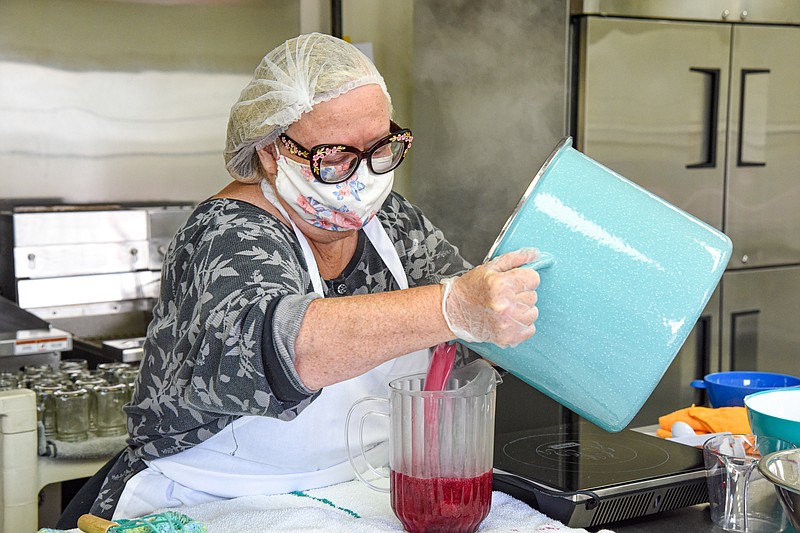Every delicious meal starts with a recipe and a kitchen stocked with the ingredients to create it.
For Cindy Borgwordt, food safety specialist at Lincoln University, the recipe behind her dream of creating a culinary incubator where LU faculty and staff could rent out the school's commercial kitchen to develop skills and their food-related businesses started with a food safety grant.
The grant was awarded by the National Institute of Food and Agriculture (NIFA) in association with Lincoln University to offer local entrepreneurs the ability to comply and be taught measures of food safety set up by the Food Safety Management Act.
Borgwordt said the inspiration behind the culinary kitchen was a belief it could really benefit the community at large.
"It's a place for people who want to start making a food product," Borgwordt said. "Let's say they've got an idea, but they can't afford to go buy brick and mortar or can't afford all the commercial kitchen equipment that's needed.
"This gives them an opportunity to refine the recipe, make sure that it works," she said. "Start out small, make your mistakes here before you invest money or take out a loan."
Now, she's an administrator for the culinary incubator. Borgwordt was chosen by her dean to develop the kitchen in 2004. But due to various issues, the kitchen was inactive for some time. In 2019, the food safety grant was approved from the NIFA for $230,546 and was partnered with Lincoln University's Small Business Development Center to assist people with low resources. The coronavirus pandemic slowed efforts to get the incubator off the ground, but it's fully operational now.
LU's culinary incubator and commercial kitchen has a lot of different services it can offer to the community, as well as the student body.
"We have a Department of Agriculture and we have a lot of students in it," Borgwordt said. "Food safety is the number one priority with food and agriculture, and for the students, this could provide them an opportunity so that when they graduate, they've got food safety certifications and experience in a kitchen without having to go work in a fast food place. It gives them an opportunity to add things to their resume."
With that in mind, Borgwordt said, she wants to make sure the culinary incubator extends to the public. One example of what that might look like involves culinary incubator client Therese Prenger, who specializes in making and selling jelly infused with different kinds of flowers and wine.
Prenger said, "I wanted to start making jelly, and my apartment was too small. And my daughter didn't want me messing up her kitchen anymore, so I said I wanted to find a commercial kitchen.
"I looked on the internet, and this was the first one that came up," she said.
Prenger has made about 169 jellies mixed with lilac, lavender, chardonnay and other ingredients she sold at the farmers market. After her product took off, she immediately began to look for a space to make more and was grateful to find LU's services, she said.
Borgwordt said she wants to give back to people who might need help the most, and she plans to reach out to individuals who are socially disadvantaged. Compared to other commercial kitchens, the incubator charges reduced usage rates to those who are accepted into the program.
Culinary incubator members - individuals who been approved to be part of the program to learn food safety training, protocols, etc. - pay a rate of $150 annually. A culinary incubator associate - an individual only looking to use the cooking facility - pays a rate of $200 annually. Fees vary for operational hourly rates.
As a bonus, Borgwordt said, she even pays for each members' required food safety training, which can add up to about $800 per person. The program was established to seek out and assist those who lack the funds and training to set up their food business by themselves and membership is based off these requirements.
"(I want the community to know that) I am here for you," Borgwordt said. "If you just have a food safety question, you can call me. And if I don't know the answer immediately, I can get it. I'll refer you to the right person."
Individuals looking to use LU's culinary incubator can email Borgwordt at [email protected].

